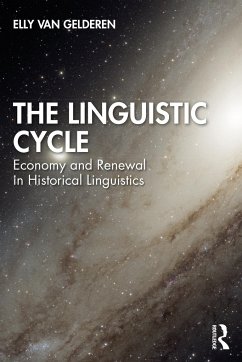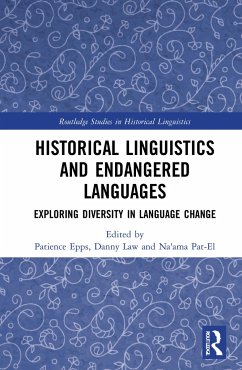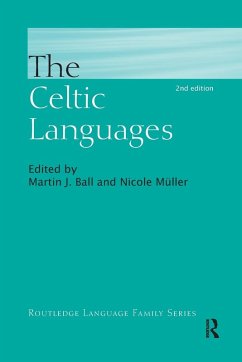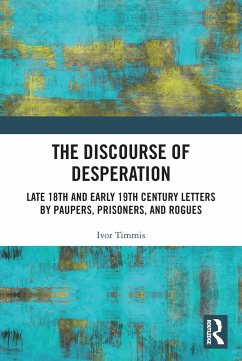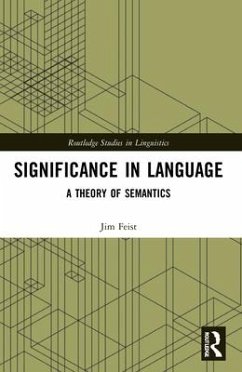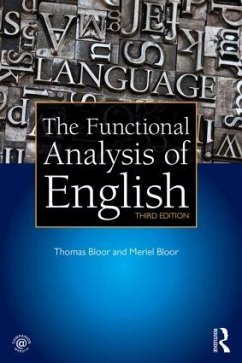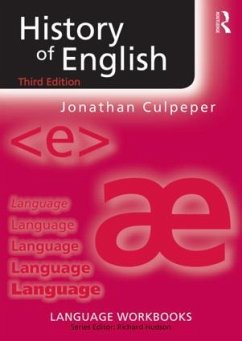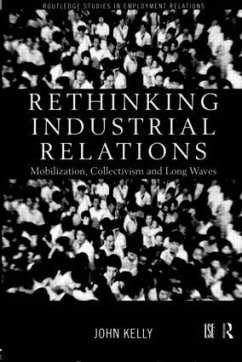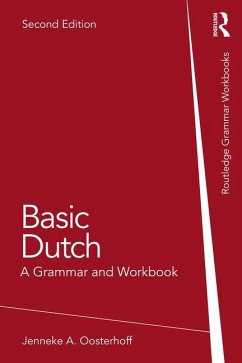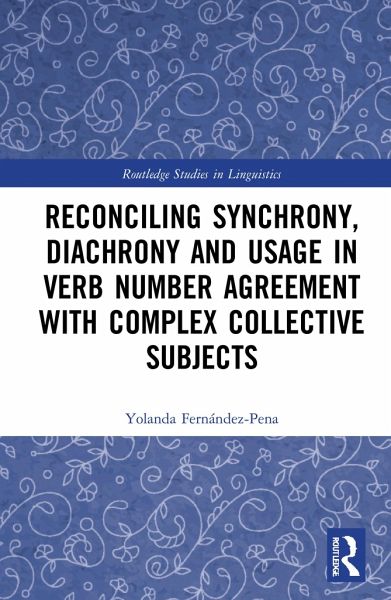
Reconciling Synchrony, Diachrony and Usage in Verb Number Agreement with Complex Collective Subjects
Versandkostenfrei!
Versandfertig in 6-10 Tagen
46,99 €
inkl. MwSt.
Weitere Ausgaben:

PAYBACK Punkte
23 °P sammeln!
_Winner of AEDEAN Leocadio Martín Mingorance Book Award on Theoretical and Applied English Linguistics (2021)__Winner of ESLA Guadalupe Aguado Research Award for Young Researchers (2022)__Winner of ESSE Book Award 2022 for Young Researchers in the category 'English Language and Linguistics_This book uses corpus-based methodologies to investigate the wide variety of factors behind verb number agreement with complex collective noun phrases in English.The literature on collective nouns and their agreement patterns spans an array of disciplines and approaches. However, little of the research cond...
_Winner of AEDEAN Leocadio Martín Mingorance Book Award on Theoretical and Applied English Linguistics (2021)_
_Winner of ESLA Guadalupe Aguado Research Award for Young Researchers (2022)_
_Winner of ESSE Book Award 2022 for Young Researchers in the category 'English Language and Linguistics_
This book uses corpus-based methodologies to investigate the wide variety of factors behind verb number agreement with complex collective noun phrases in English.
The literature on collective nouns and their agreement patterns spans an array of disciplines and approaches. However, little of the research conducted to date has focused on the influence of of-dependents on verb number with relational collective nouns, as in examples such as a bunch of or a group of. Drawing on data from two case studies one based on the Corpus of Historical American English (COHA), and the other on the British National Corpus (BNC) and the Corpus of Contemporary American English(COCA) Fernández-Pena uses statistical modelling to unpack the different morphological, syntactic, semantic and lexical dimensions of the variables affecting verb number agreement with complex collective noun phrases in English. This multidimensional analysis of the significance of of-dependents in the patterning and contemporary usage of collective nouns offers new insight into and understanding of both synchronic variation and diachronic change.
This book is an essential read for scholars of English language variation and change, historical linguistics, corpus linguistics, and usage-based approaches to the study of language.
_Winner of ESLA Guadalupe Aguado Research Award for Young Researchers (2022)_
_Winner of ESSE Book Award 2022 for Young Researchers in the category 'English Language and Linguistics_
This book uses corpus-based methodologies to investigate the wide variety of factors behind verb number agreement with complex collective noun phrases in English.
The literature on collective nouns and their agreement patterns spans an array of disciplines and approaches. However, little of the research conducted to date has focused on the influence of of-dependents on verb number with relational collective nouns, as in examples such as a bunch of or a group of. Drawing on data from two case studies one based on the Corpus of Historical American English (COHA), and the other on the British National Corpus (BNC) and the Corpus of Contemporary American English(COCA) Fernández-Pena uses statistical modelling to unpack the different morphological, syntactic, semantic and lexical dimensions of the variables affecting verb number agreement with complex collective noun phrases in English. This multidimensional analysis of the significance of of-dependents in the patterning and contemporary usage of collective nouns offers new insight into and understanding of both synchronic variation and diachronic change.
This book is an essential read for scholars of English language variation and change, historical linguistics, corpus linguistics, and usage-based approaches to the study of language.





